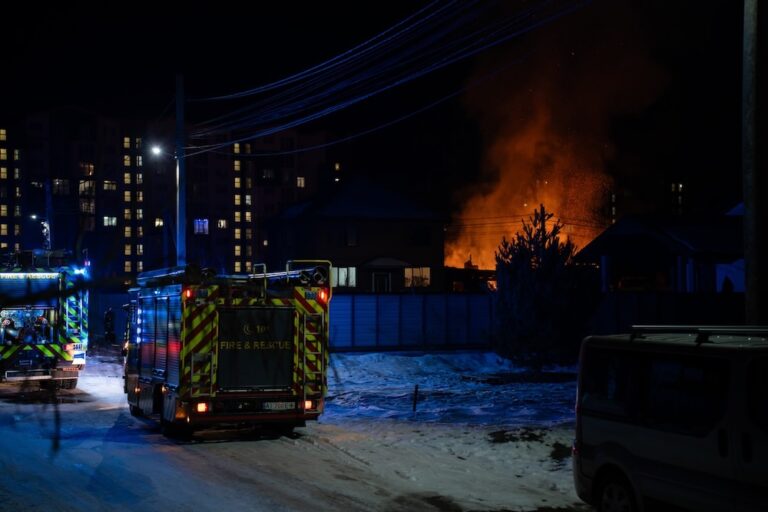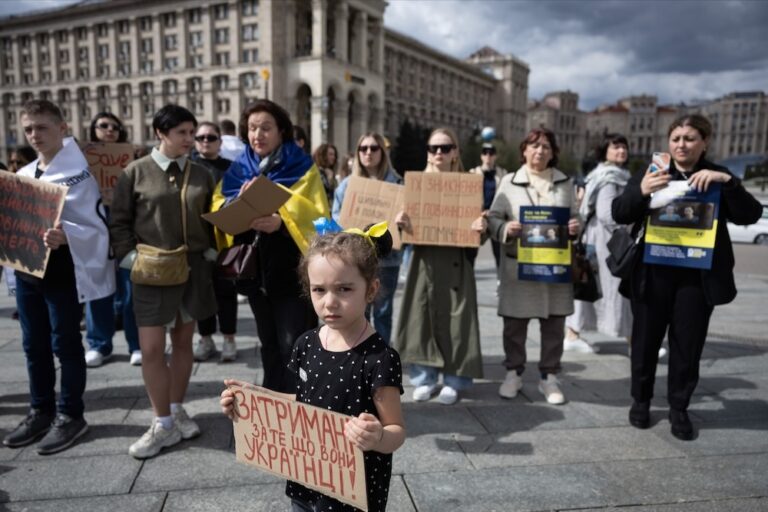(CJES/IFEX) – The newspaper “Arsenyevskiye Vesti” has received an official warning from the prosecutor’s office of the Vladivostok Frunzensky district, which accused it of disseminating materials containing elements of extremism. The warning was issued over an article entitled “One Nation – One Constitution” published in the 3-9 September 2008 edition of “Arsenyevskiye Vesti”. The article […]
(CJES/IFEX) – The newspaper “Arsenyevskiye Vesti” has received an official warning from the prosecutor’s office of the Vladivostok Frunzensky district, which accused it of disseminating materials containing elements of extremism. The warning was issued over an article entitled “One Nation – One Constitution” published in the 3-9 September 2008 edition of “Arsenyevskiye Vesti”.
The article dealt with the killing of Magomed Yevloyev and the genocide of the people of Ingushetia and contained an address by members of the Ingush nation to the world community.
The Vladivostok prosecutors believe the article “promotes a negative image of Russia, whose policy on Ingushetia (and the people of the Northern Caucasus in general) is presented in the article as aggressive”. “This article forms a negative attitude towards the Russian nation among people of other ethnicities and promotes social tension and ethnic feud,” said the prosecutors. The paper was warned that fanning social and ethnic feuds constitutes extremism under Article 1 of the federal law On the Prevention of Extremist Activities. The law On the Mass Media prohibits abuse of the freedom of the mass media.
The paper’s staff says the decision to publish the article was made on the basis of the principles of freedom of speech, which is not limited by any political, ethnic, or religious convictions. Moreover, the paper has no intention of contesting the prosecutors’ warning.
Under Article 8 of the federal law On the Prevention of Extremist Activities, if a newspaper does not agree with a warning issued by a prosecutor, it is required to file a lawsuit stating why it disagrees with the warning and asking the court to reverse it. Otherwise, the publication of the paper is to be suspended if new information emerges.
As for the political implications of the publication, the paper’s editorial staff is convinced that this publication “helped Russian President Dmitry Medvedev correctly evaluate the situation and take appropriate measures to prevent extremism in the Caucasus”. By the appropriate measures the journalists mean the presidential decree on early termination of the powers of Ingushetia’s president, Murat Zyazikov. The republic’s government has been dismissed under a decree issued by Ingushetia’s new president, Yunus-bek Yevkurov.
Yevloyev, a journalist and owner of the website http://www.ingushetiya.ru (which was found by the court to be extremist) was shot and killed at the Magas airport on 31 August 2008. A criminal case was opened on the basis of Article 109 of the Russian Criminal Code (“negligent use of firearms resulting in homicide”). Soon after Yevloyev’s killing, protest rallies were held in Ingushetia demanding the resignation of the republic’s president, Zyazikov.
For further information on the Yevloyev case, see: http://ifex.org/en/content/view/full/96798


